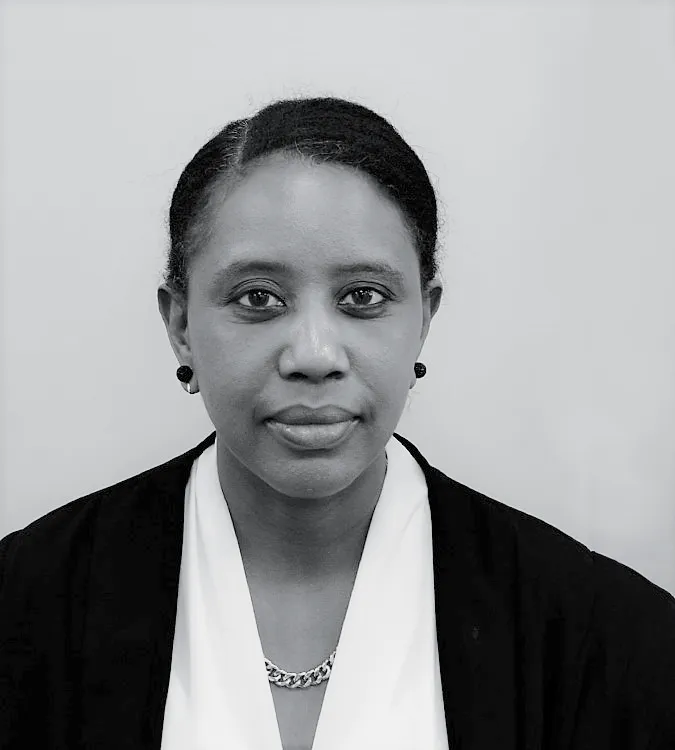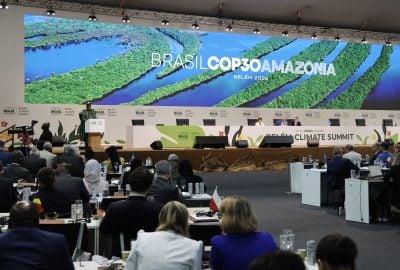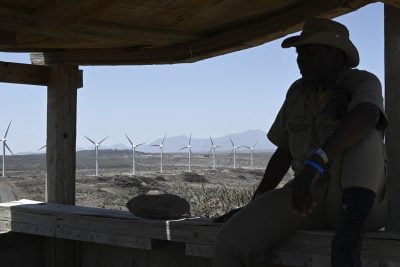Even though the need and appetite for infrastructure investment has remained robust globally, especially after the pandemic showed the long-term attractiveness of the sector, the investment environment for infrastructure remains on the tougher side, with challenges to dealmaking and fundraising.
Institutional investors, in particular, are also being kept busy with a mandate to incorporate environmental, social and governance (ESG) issues into their portfolio selection. These remain top of the agenda despite the culture wars backlash against so-called “woke capital”, particularly investments incorporating climate mitigation strategies, in the US. In this analysis I evaluate how these issues affect Africa, with its increasing infrastructure and climate adaptation demands, and hence capital needs.
Extreme weather events are making it harder to deny the importance of looking at ESG and climate themes such as “decarbonisation, energy transition, and circular economy” for infrastructure investments, as identified by Siongkoon Lim, a partner at Roland Berger in London. So energy infrastructure investment is very favourably looked upon by investors currently. These issues are also rapidly changing the classification and long-term trend outlooks for infrastructure investment, according to Roland Berger.
However, infrastructure investors should not be complacent – risks persist in 2023, even though the infrastructure industry will broadly continue to do well from decarbonisation, and digitalisation, which will also be a key driver for capital raising. But how do these global financial market trends square alongside the still-difficult macro outlook for African infrastructure investment?
On the macro side, the IMF’s most recent Regional Economic Outlook for sub-Saharan Africa notes that persistent global inflation and public debt, combined with other factors, could mean a shortage of funding for infrastructure projects. This could end up “weakening [Africa’s] growth potential”, although there is variation across the continent both in terms of need and in terms of market fragmentation.
According to Europa World, sub-Saharan Africa has been confronted by a number of serious energy challenges, mainly related to insufficient generation capacity and an over-reliance on fossil fuels. Due to the region’s small, fragmented energy markets, electrical supply systems struggle to find economies of scale, and electricity is thus expensive (although often heavily subsidised).
The region’s entire electric generation capacity (63 GW) is comparable to that of Spain. The region (excluding South Africa) has the world’s lowest per capita consumption of electricity at 150 kWh, compared with a world average of 3,133 kWh.
As Lord Peter Hain notes in a related article, in 2022, 600m people in Africa, or 43% of the continent, lacked access to electricity. However, Africa’s resource base and associated investments could help accelerate progress by developing diverse energy sources.
African solutions gain pace
Indeed, with so much media attention focused on Africa’s problems and needs, where are the solutions?
Industrialisation and economic development needs in regions like sub-Saharan Africa has meant that demand for infrastructure continues to gather pace while capital formation and mobilisation requires more innovation and collaboration – now – as identified by the Africa50 initiative, which is introducing cutting-edge financing techniques and encouraging blended finance initiatives, examples are:
- The landmark asset-recycling deal agreed with the Republic of Togo in July, which allows the small economies to find hacks to the tough capital raising conditions for African countries.
- The Africa50 Infrastructure Acceleration Fund (IAF), set up to catalyse investment flows into the development of critical infrastructure across the continent. This historic collaboration brings together a diverse group of influential stakeholders including sovereign wealth funds, development finance institutions, banks, pension funds, and asset managers.
Africa50 also advocates for nuance and fairness in credit risk profiling to ensure greater access to affordable pools of international capital for less-developed countries.
This echoes recent pushbacks from African leaders about the paltry allocations of sustainable finance in particular, and the unlevel global market playing field overall. Leaders of South Africa and Zambia called for a “transformation” of the world’s financial system at French President Emmanuel Macron’s Summit for a New Global Financing Pact.
Alongside becoming more vocal about having fair access to development capital, African countries are also innovating with their solutions and rapidly implementing policy supports including energy efficiency and other regulatory reforms such as those announced by South African President Cyril Ramaphosa in late July.
The acceleration towards decarbonisation described above and promulgated and reinforced in the EU’s new green deal will have implications for Africa, particularly for those hoping to sell their hydrocarbon finds on to the global market.
In the June issue of IC Intelligence Insights, The New Geopolitics, I discussed with Lord Jim O’ Neill the risks of stranded assets for African countries and the tightrope they must walk between managing domestic demand from industrialisation against a declining global market for fossil fuels, while still emitting the least carbon even as baseload capacity improves.
Indeed, Africa may decide to increasingly rotate its gaze to the east, where initiatives like China’s Belt and Road have already invested heavily in rail corridors between countries like Djibouti and Ethiopia. With all the buzz around the New York Times’ demographics feature in July, investors elsewhere would do themselves a disservice to ignore Africa’s promising infrastructure investment environment. By 2050 a quarter of the people on the planet will be African, rising to one-third by 2100.
Solutions will also be accelerated by the foundations being laid for a single market in Africa through the African Continental Free Trade Area (AfCFTA), the world’s largest free trade area by number of countries (54). Once in full operation the AfCFTA will eliminate tariffs on 90% of intra-regional trade flows and establish a market of 1.2bn people with a combined GDP of $3.4 trillion.
In addition, the pact will also reduce or eliminate many non-tariff barriers, as well as standardise the trade process through digitalisation, which may prove to be more important in the long term. This will increase connectivity and freedom of movement, ultimately making domestic capital raising more independent from capital markets in the so-called Global North.
AfCFTA and Africa50 could turn Africa’s current perceived weaknesses for scaling infrastructure into strengths. Because many natural resource projects are located in remote and rural communities, the scale-up of green energy investments and regional infrastructure could be leveraged to alleviate rural poverty and promote productivity gains.
African countries can leverage their resources to bring together their energy mix to meet domestic needs while decarbonising at pace to ensure a just transition that includes good governance and sound macro-fiscal management of resource revenues.
This article first appeared in Issue 11 of IC Intelligence Insights. Click to access the full publication.
Want to continue reading? Subscribe today.
You've read all your free articles for this month! Subscribe now to enjoy full access to our content.
Digital Monthly
£8.00 / month
Receive full unlimited access to our articles, opinions, podcasts and more.
Digital Yearly
£70.00 / year
Our best value offer - save £26 and gain access to all of our digital content for an entire year!

 Sign in with Google
Sign in with Google 



